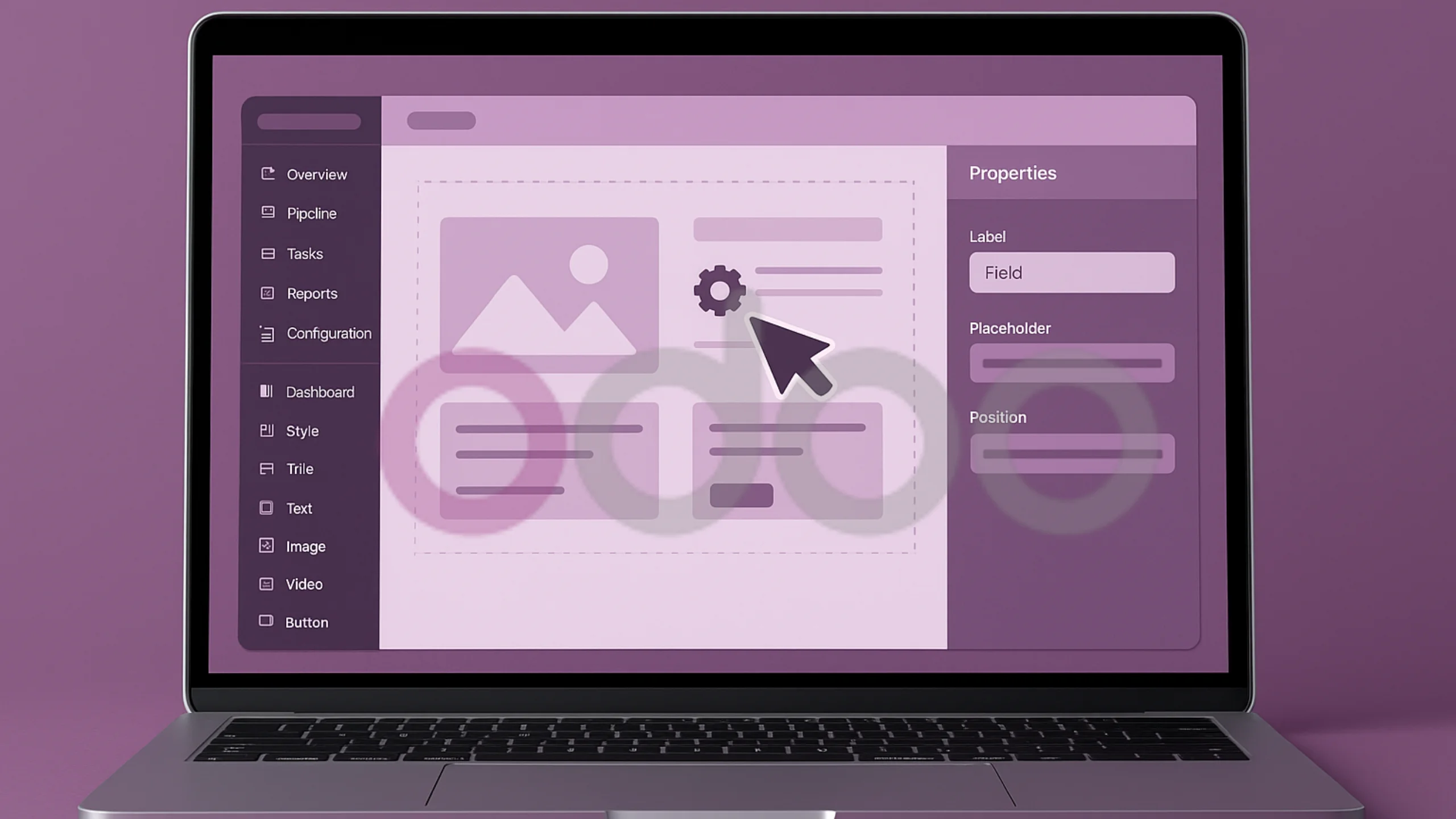Introduction
Odoo is a powerful and flexible ERP platform used by businesses globally to streamline their operations. However, despite its advantages, the Odoo Implementation process can be challenging. The complexity of Odoo configuration, customization, and integration can lead to delays and complications if not properly handled. In this blog, we’ll discuss the top Odoo Implementation challenges and provide solutions to overcome them.
1. Choosing the Right Odoo Implementation Partner
Challenge:
One of the initial and most critical challenges is selecting a technically capable implementation partner. A misaligned team can result in unstable modules, broken workflows, or inefficient customizations.
Solution:
Evaluate partners based on their demonstrated expertise in module configuration, XML/ORM-based customization, and PostgreSQL performance tuning. Request sandbox demos of previous implementations and assess their ability to write custom modules using the Odoo framework (Python + XML). Use a scoring matrix that ranks them on integration success, system architecture planning, and post-deployment support.
For more details, explore our Odoo Consulting Services.

2. Resistance to Change Among Users
Challenge:
Users often hesitate to adapt to new workflows, especially if the previous systems were informal or undocumented. This slows adoption and reduces ROI.
Solution:
Integrate role-based dashboards and guided workflows within Odoo Studio tailored to each user’s responsibilities. Use automated onboarding tours via Odoo’s built-in help modules and gamify learning with milestone-based usage metrics. Implement KPIs visible on dashboards to reinforce the impact of user engagement.
For more details, explore our Odoo Customization Services.
3. Insufficient Customization for Specific Business Needs

Challenge:
Generic Odoo modules often fall short for niche industries like manufacturing, logistics, or healthcare, which need unique fields, logic, or processes.
Solution:
Use Odoo’s server action engine and automated scheduled actions to inject custom Python code for logic-specific automation. Extend existing models using inherit class structure to add new fields and workflows, ensuring that custom modules are upgrade-safe. Build industry-specific apps using the Odoo Studio or custom modules for functionality not covered out-of-the-box.
Learn more about our Odoo Custom Integration Services.
4. Data Migration and Integration Complexity
Challenge:
Legacy system data is usually unstructured, inconsistent, or in incompatible formats. Additionally, integrating third-party systems such as CRM, WMS, or eCommerce adds complexity.
Solution:
Use Odoo’s open ERP connector custom Python scripts with Odoo’s XML-RPC/JSON-RPC APIs to handle large-scale data imports with error logging. Implement validation rules during import to sanitize data in transit. For integrations, use Odoo’s external API connectors or build a middleware layer using tools like Talend or Zapier for bi-directional sync with legacy systems.
Refer to our guide on Data Migration Best Practices for Odoo Implementation.
5. Scalability and Future Growth
Challenge:
A poorly configured instance may suffer from slow query response, failed background jobs, or storage limitations as data and user load grow.
Solution:
Architect the system with multi-worker Odoo deployment (using odoo.conf config tuning) and PostgreSQL indexing for read-heavy operations. Use database partitioning for large datasets like logs or historical records. Enable auto-scaling on the hosting infrastructure and utilize external file storage (like AWS S3) for attachments. Monitor performance using Odoo’s built-in logging and third-party tools like New Relic or Grafana.
Explore our insights on Challenges in Implementing Odoo for Large Enterprises.
Conclusion: Overcome the Challenges with Expert Odoo Support Services
Implementing Odoo successfully requires careful planning and the expertise of the right team. By addressing the common Odoo implementation challenges such as choosing the right Odoo partners, overcoming user resistance, ensuring proper Odoo configuration, and planning for scalability you can ensure that your Odoo platform meets your business’s needs now and in the future.
Partnering with an Odoo development company that provides Odoo migration services, custom Odoo integration services, and expert Odoo support services will help your business unlock the full potential of Odoo.
FAQ'S
What Are The Common Challenges Faced During Odoo Implementation?
Odoo implementation can present several challenges, including selecting the right Odoo partner, user resistance, complex data migration, insufficient customization, and lack of scalability planning. Addressing these early can ensure a smooth transition to the Odoo ERP system.
How Do I Choose The Right Odoo Implementation Partner?
Choose an Odoo development company with proven experience in Odoo customization, integration, and successful ERP deployments. Evaluate client case studies, industry expertise, and post-launch support capabilities before finalizing your Odoo consultant.
How Can We Overcome Employee Resistance To Odoo ERP?
To reduce user resistance, involve key stakeholders from the start, provide hands-on training, offer detailed documentation, and ensure ongoing expert Odoo support services after implementation.
What Is The Importance Of Odoo Migration Services?
Odoo migration services ensure accurate, secure, and complete data transfer from legacy systems to the new Odoo platform. An experienced Odoo migration team can minimize downtime and prevent data loss.
Can Odoo Scale As My Business Grows?
Yes, Odoo is highly scalable. With the right configuration and expert Odoo consultants, the platform can support additional users, data volume, and integrate with third-party systems as your business expands.





